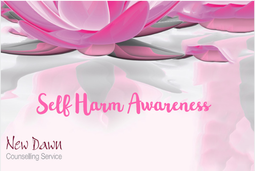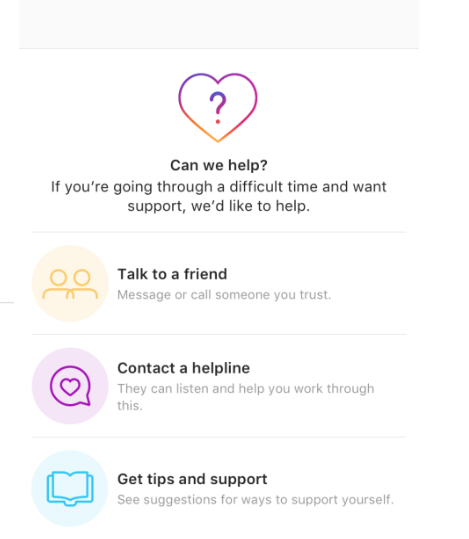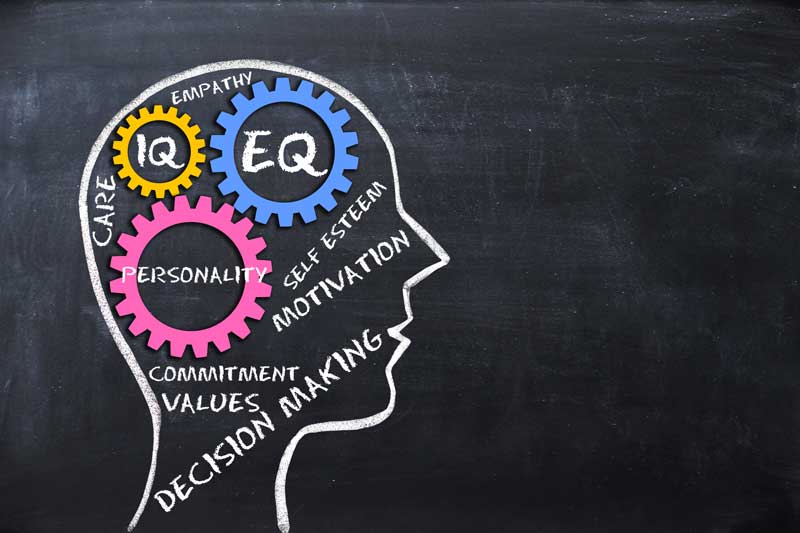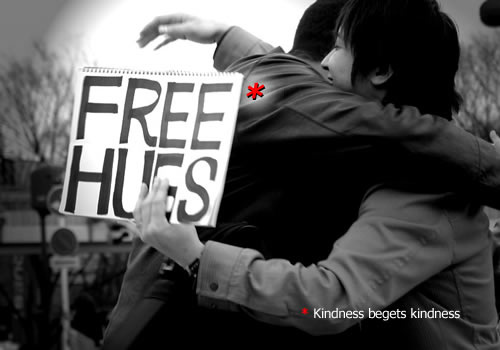|
22/12/2017 0 Comments Christmas - A Time to Mind OurselvesWhile Christmas is known as the season of goodwill spreading cheer and happiness, it also can be one of the most stressful periods in the year. It is really important to take time to look after ourselves. Something as simple as going out into the garden, breathing deeply, even taking an extra 5 minutes in the bathroom to gather your thoughts before going back to join the hubbub can help to destress you, here are some more suggestions:
Some additional suggestions can be found in this article on TheJournal.ie If you still feel events, situations are getting too fraught and you need that extra bit of support, here are some emergency numbers: If you’re feeling low and need to speak to someone, contact:
Mental Health Ireland www.mentalhealthireland.ie have some advice on their website for handling Christmas stresses.
0 Comments
Such an interesting article which opens up some possible positives (?) What do you think?
 "The phrase “self-harming behavior” may call up images of troubled teenagers with cuts on their arms. But self-injury can occur for people of any age, in children, adolescents and adults, whether male or female. This is not at all a teenage fad! People who self-harm or cut are people who are in pain."..... I'm sharing this very insightful article about Self Harm. If you have any questions regarding the issue please do not hesitate to get in contact with me. Katrina....it continues... "As therapists, one of the important things we notice is the emotional pain — not just the outward expression of it. A trauma-informed approach begins by building trust and safety for the person using self-harming behaviors. We do this by offering the understanding and compassion they need to begin facing the trauma within. What is Self Harming Behaviour?Cutting is the most often recognized form of self-injury. But self-harm comes in many forms. It is any self-injurious behavior that is harmful, that is used as a coping skill. Some specific examples include:
It is important to see self-harm as a kind of meta communication around someone’s emotional pain. The behavior has meaning or value for the person doing it. That meaning or understanding is so important to move toward healing. Why People Use Self Harming BehaviourOn the surface, self-harming behavior may look like a form of self-punishment. It may be, but it also serves as a mechanism for emotional self-regulation for those with unresolved trauma. Survivors of trauma may injure the parts of themselves they feel ‘bad’ about. It’s as if those parts can be ‘punished,’ in an effort to cope with complex negative experiences, such as shame, within themselves....Read More Tuning Into the Overwhelm Beneath the BehaviorAs therapists, we recognize the importance of tuning into the emotional pain of someone who self-harms, rather than the behavior itself. Parents may recognize the need to look deeper at the underlying turmoil. Writer James Hunt describes coming to terms with his son Jude’s self-harming behavior after Jude was diagnosed with autism... Read More Working With the Person Who Self-Harms and With Their Loved OnesTreating self-harm means bringing a compassionate, self-caring attitude to the behavior. The person is using the behavior to cope with anxiety or emotional pain that is outside their window of tolerance of emotions. Physical pain has become their way to calm emotional pain; either overwhelming hyper-arousal or numbing hypo-arousal, which feels unsafe and unstable...... Read More The Importance of Self-Care in Recovery from Self-Harming BehaviorIn therapy, I teach both clients and loved ones about taking care of wounds that happen because of self-injuring behavior. We guide children and adolescents to show injuries to a parent or primary caregiver. We help parents or loved ones support their loved one in treating the injury so it heals well, and to evaluate whether any cuts or wounds needs stitches or other medical care.... Read More Compassion for Parents and Partners of Those who Self-HarmTherapy for self-harming behavior means having a lot of compassion for the parents or partners as well. The parents and loved ones are trying their hardest to help but they don’t always know what to do..... Read More Healing ConversationsIt’s difficult to be compassionate if you don’t yet understand the person’s struggle to manage their emotions. Yet it is possible — and healing — to circle back to an initial reaction that may have temporarily made things worse (e.g., “Are you crazy? What did you DO?”)...... Read More Read the Full Article on A Professional Approach to Treating Self-Harming Behavior: Healing with Self-Care and Compassion By Robyn Brickel, MA, LMFT17/1/2017 0 Comments Grief Losing someone is one of the hardest experiences we will ever have to go through. The grief we suffer is different for everyone but for one thing; our grief is a sign that we love. I have been asked many questions about grief; how long does it last? Should I feel like this? Am I going mad? Does it ever end? One person has described his grief and I feel many of you will relate to it.
13/1/2017 0 Comments AnxietySometimes I come across an article that so eloquently describes feelings that I've just got to share them. Because, we can't always find those words that can explain how we are feeling. So if you can relate to any of the following, or what is in the article. You are not alone. Anxiety is treatable. You don't have to feel like this for ever.
Anxiety can take a number of forms, here are just a few: PTSD, Social Phobia, Panic Attacks, OCD, Fear, Over Thinking
If you want to talk over anything you have read here or feel you might have, don't hesitate to contact someone. Help is only a phone call or message away. Know how you feel when you sing along to that catchy tune on the radio, or stepping outside the door and letting the sun or wind caress our faces, or the smell of cut grass, how enjoying any of these can just lift our spirits. During Winter we need more of these spirit lifting moments. Here are some more suggestions courtesy of thejournal.ie YOUR MENTAL HEALTH, just like your physical health, is something you need to look after, and something you can do a lot to take care of. Doing little things that make you feel better regularly, particularly when things are tough, is one of the best ways to boost your mood and reduce stress and anxiety. Last week we asked our readers what they do to make themselves feel better when they’re down, and there are some great tips in there. Here are some of the best we got. What are yours? 1. Exercise – especially outdoors
2. Sing a song
3. Do some reading
4. Think of a small act of kindness for someone else
5. Watch something funny or uplifting
6. Be creative
8/11/2016 0 Comments Self Forgiveness
Below is a very interesting article from Michaela McCarthy - would any of these points be relative to you and stop you from seeking the support you need? If after reading this article you would like to talk, please ring me on 087 285 9985, or connect with me using the Contact form on my website. Thank you. Katrina
If life is getting on top of you, and daily struggles are becoming too much, then you may come to a point when you’re ready to reach out for psychological help. The decision to come into therapy can take courage. Yet the very act of asking for support can be daunting in itself. While weekly counselling and psychotherapy sessions can support you as you explore your issues and gain a greater understanding of yourself, for some people there are fears holding them back from allowing themselves this experience. Here we share the four biggest fears that people have about coming into therapy – and how to overcome them.
This is a very real fear, especially if you have valiantly ‘coped’ for many years. Yet the process of therapy, and the relationship with your therapist, will make it gradually safer for you to soften those defences and allow access to the raw feelings beneath. You won’t experience anything you won’t be able to deal with – and, in fact, the feelings often wait until you are ready. Therapy is about trusting that process.
In reality, counsellors and psychotherapists go through years of training and personal development to process their own issues so they can be fully present for their clients. Therapists don’t judge, shame, or impose their own opinions on you. They offer a safe, confidential and empathic space for you to explore the darkest corners of your psyche. Therapy can help bring unconscious issues into consciousness where you’re able to explore and discuss them. When you become more aware of what is going on, and your issues are out in the open, they can have less of a hold on you, and you can feel lighter and freer as a result. Let the relationship with your therapist build to a point where you feel safe and supported to let everything come out in its own time.
Wrong. Any problem that is getting in the way of you living your life is worth exploring and working through. It doesn’t matter if other people in your life don’t agree with, understand or support your decision to come to therapy. It’s irrelevant whether other people need support than you. Coming into therapy can be a way of creating the life you want, rather than enduring the life you’ve got.
When therapy is going well, you can build a positive attachment to your therapist. He or she is the one who ‘gets’ you. They support you week on week as you grapple with the issues, behaviours, emotions and thoughts that are disrupting your life, and as you seek to understand why you are the way you are. You look forward to your sessions, you use your time to the full, and you are starting to see positive changes in your life. The relationship with your therapist is not a dependent one. It is a relationship that nurtures growth. Your therapist can work on an open-ended basis with you, but you are the one who will know the point in your journey when you’re ready to walk alone. This can take weeks, months or years, depending on the issues you are bringing to therapy. You decide when you’re ready and your therapist will manage the ending so that you’re not left with any loose ends. The process will enable you to develop a stronger sense of self so that you feel more robust to face life without the old scaffolding. This post first appeared on The Awareness Centre's Talking Therapy blog. https://www.linkedin.com/pulse/four-biggest-fears-people-have-coming-therapy-michaela-mccarthy |
AuthorMy name is Katrina Jones, the person behind New Dawn Counselling Service which is situated in Tullamore, Co Offaly. Archives
July 2023
CategoriesAll CBT Christmas General Grief Life Mental Health Self Harm Social Media Video |
Search by typing & pressing enter











 RSS Feed
RSS Feed